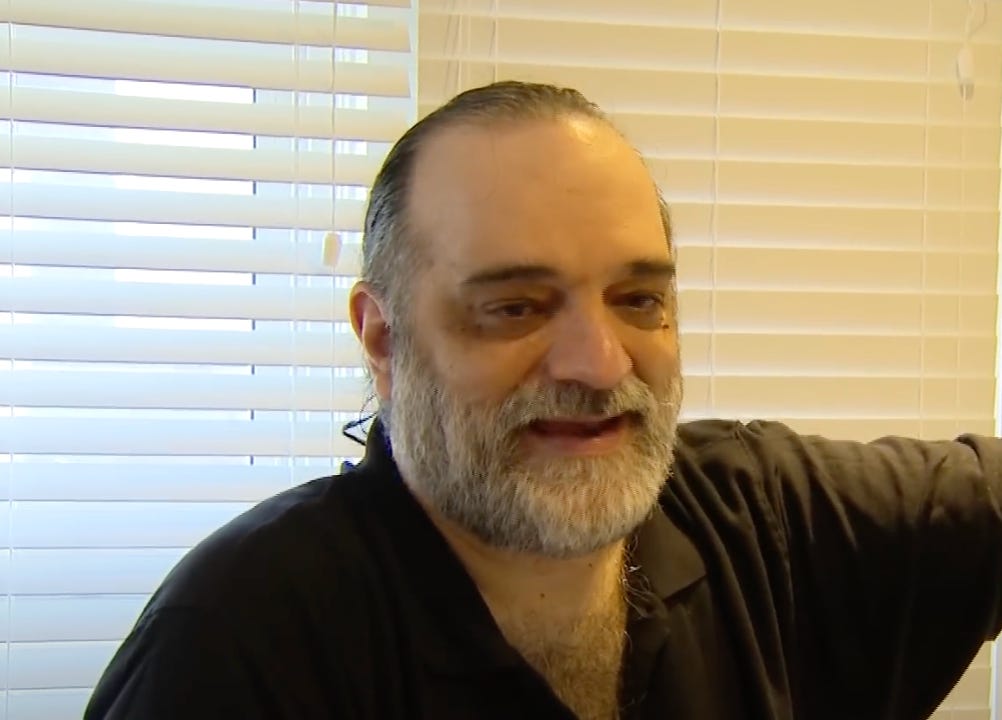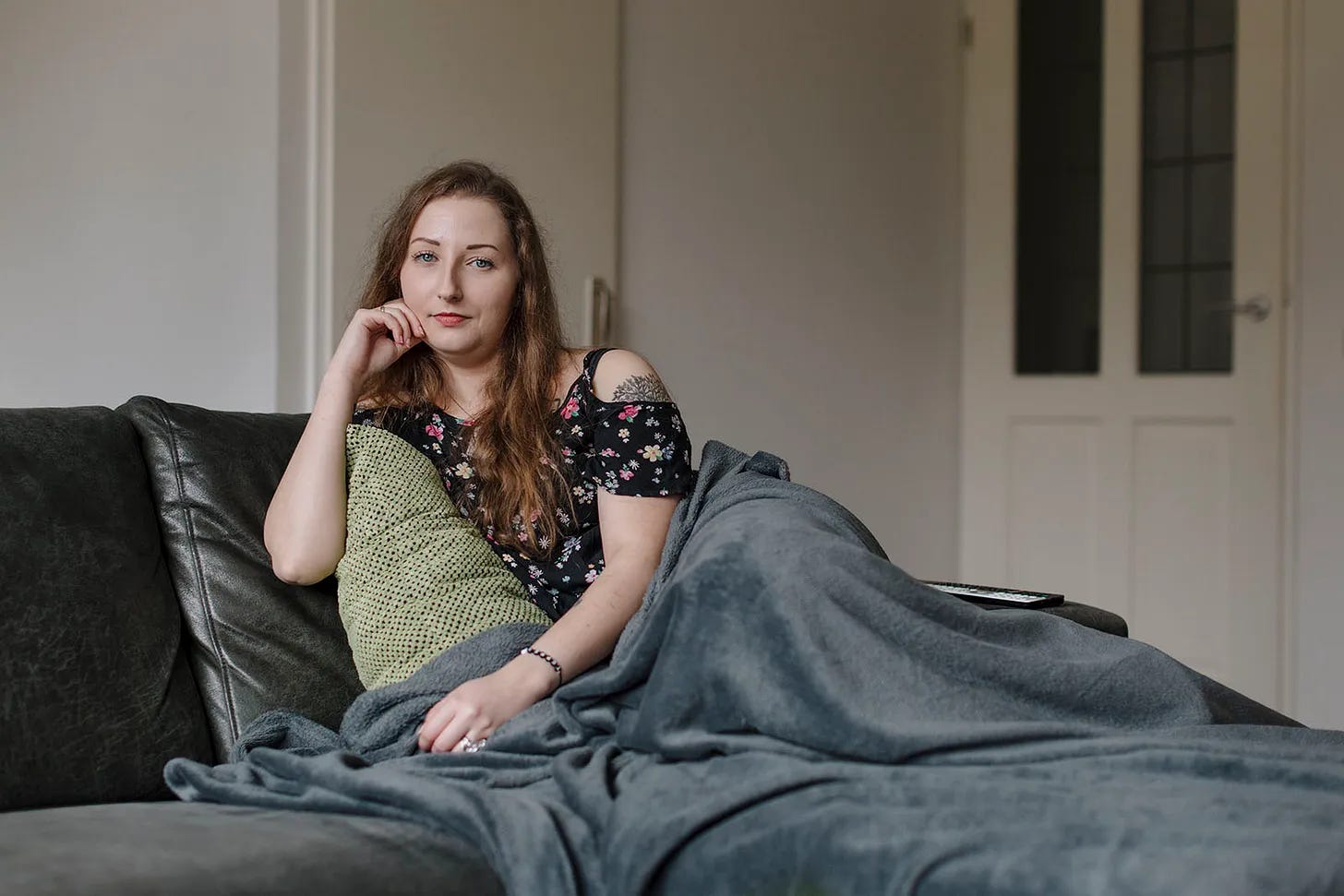The Dark Reality of Assisted Suicide
How this unsettling trend is already beginning to spin out of control
There is an important bill progressing through Parliament right now. It would legalise assisted suicide for terminally ill patients with a life expectancy of six months or less.
While I empathise with a terminally ill patient’s desire to avoid unnecessary suffering in the final moments of his or her life, this bill sets a very dangerous precedent.
First, there is an obvious financial incentive for the government to euthanise patients. A recent 149-page impact assessment report revealed that if the bill becomes law, the NHS could save £10 million in the first year, rising to nearly £60 million after 10 years. The government is already cutting funding to basic necessities like hospice care, Winter Fuel Payments and disability benefits. Why would it bother to spend more money on keeping people alive when it could just kill them instead?
Second, doctors can be wrong. Just because they predict a patient will live for six months or less does not mean it’s necessarily true. Maria Kelly Foy, a Labour MP for the City of Durham, made this point in an emotional address to Parliament in November 2024.
“My daughter Maria lived her life with severe disabilities and health conditions and since her birth, we were told many times that she might have only six months to live,” Foy said. “She lived for 27 years.”
Beyond the basic ethical concerns surrounding assisted suicide, the bill itself is a recipe for disaster. There would be zero requirement for doctors to inform a patient’s relatives ahead of their scheduled death, and no way for family members to sound the alarm about possible coercion. Doctors would also be free to suggest assisted suicide as an option for minors, who could then go through with it the day they turn 18.
To make matters worse, the majority of the hundreds of common sense amendments proposed during the committee stage have been rejected. These amendments sought to protect vulnerable groups like people with Down’s syndrome, anorexia, and diabetes; implement mandatory palliative care consultations; and require stronger mental capacity assessments to ensure that patients fully understand their decisions.
Across the pond, the situation is much more dire.
Canada legalised assisted suicide — which they sugar coat as “medical assistance in dying” (MAID) — in 2016. Since its legalisation, over 60,000 Canadians have died from assisted suicide. In December 2024, the Canadian government released a report revealing that 1 in 20 deaths are now caused by euthanasia in Canada.
When MAID was first legalised in 2016, only the terminally ill were eligible to apply. Shockingly, the law was amended in 2021 to include non-terminally ill people. Since then, Canadians suffering from poverty, isolation and homelessness have also applied to be euthanised.
In 2022, Amir Farsoud, a disabled man who faced eviction from his social housing unit and struggled to afford food, applied for MAID. After receiving $60,000 in donations from sympathetic strangers online, he rescinded his application.
“I’m a different person,” Farsoud told CityNews Ottawa in November 2022. “The first time we spoke, I had nothing but darkness, misery, stress and hopelessness. Now I have all the opposite of those things.”
While Farsoud is still alive to tell his story, others are not as fortunate.
In 2019, Alan Nichols, who suffered from depression, applied for MAID. He cited “hearing loss” as his only reason. Shamefully, the Canadian government approved his request, and 61-year-old Nichols was euthanised that same year.
I wish I could say the madness ends there, but it doesn’t. Although assisted suicide is not currently permitted for Canadians who are solely suffering from mental health problems, that’s all expected to change on March 17, 2027. From that day onwards, if you’re depressed and living in Canada, your government will happily euthanise you.
This egregious practice is already taking place in the Netherlands, where assisted suicide has been legal since 2001.
Zoraya ter Beek, an autistic Dutch woman who suffered from anxiety, self-harm and suicidal ideation, fell victim to this last year. Despite being in perfect physical health, her application to be euthanised was approved. On May 22, 2024, with the help of the Dutch government, ter Beek ended her life. She was just 29 years old.
Ter Beek was euthanised because she reportedly experienced “unbearable suffering with no prospect of improvement”. But who is able to say there was no prospect of improvement?
One month prior to her scheduled suicide, ter Beek shared her fears about dying with The Free Press. “I'm a little afraid of dying, because it's the ultimate unknown,” she said. “We don't really know what's next—or is there nothing? That's the scary part."
Some people argue that as long as ter Beek and others consent to being euthanised, then there’s no ethical dilemma. I strongly disagree. Every person who has committed suicide in human history technically “consented” to it. Does that make it okay?
What if you came across a person hovering over the edge of a bridge — would you try to stop them from jumping? What if that person assured you that they had thought about killing themselves for a very long time, considered all of the consequences, and remained confident that this was their only option? Would you then say, “Oh, well in that case, carry on!” or would you still try to save their life?
I have an enormous amount of compassion for people who suffer from suicidal ideation. That does not mean that I will ever condone suicide. I believe it is our duty to prevent suicide from taking place. Not to say, “Be my guest,” and hand them the metaphorical gun, rope or bottle of pills. Whatever happened to protecting people from themselves?
Orlando, a Canadian man and suicide attempt survivor, vehemently opposes MAID’s planned expansion. In a November 2024 interview with Sky News, Orlando explained that if euthanasia had been available when he was suicidal, he would have leapt at the opportunity.
“If it was available earlier, I would have chosen it in 1994. I would have asked for it in 2002. In 2004. In 2008 when I attempted my suicide. In 2012. In 2014. […] I’m alive because it’s not available now and because I failed in 2008. You want the pain to end, right? And the last thing you need is someone in a white coat who says, ‘Well I see it’s kinda rough for you. How about we help you end your life? Would you like that?’”
Orlando concluded by asking the reporter a series of powerful questions: “Now, does that say you’re worthwhile if you hear that? Does that say you have value? Does that contradict that voice in your head or does it reaffirm and confirm it?”
It is a government’s responsibility to care for its citizens. Instead of expanding access to physical and mental health services, providing housing for the homeless and creating employment opportunities, an increasing number of governments are taking the lazy and cost-effective approach of euthanasia. This is morally wrong and it needs to stop.
Arguably the most suicide-obsessed country in Europe is Switzerland, where assisted suicide has been legal since 1941. Popular for its “suicide tourism,” Switzerland attracts visitors from all over the world who wish to end their lives — no terminal illness required.
Switzerland is also where the Sarco pod, a 3D-printed euthanasia capsule, was first used in 2024.
The Sarco pod, which looks like a cross between a spaceship, a Dyson vacuum and a coffin, is designed to kill its users by simultaneously filling up with nitrogen gas and reducing oxygen levels. It was invented by Dr. Philip Nitschke (also known as Dr. Death) and Alexander Bannink. Nitschke is an Australian humanist and the founder of the pro-assisted suicide non-profit group Exit International. Bannink is a Dutch industrial designer. According to Exit International’s website, the organisation “rejects religious-based arguments that a person’s life belongs to God.”
In September 2024, a 64-year-old American woman afflicted by a compromised immune system entered the dystopian death device in a forest in Switzerland. Dr. Florian Willet, the president of the pro-assisted suicide organisation The Last Resort, was the only person present at the time of her death. Willet claimed that the American died in a “peaceful, fast and dignified” way.
However, other accounts suggest that the device malfunctioned.
Willet was reportedly heard saying, “She’s still alive, Philip,” over a video call to Nitschke six and a half minutes after the device was activated. The woman was later found dead with strangulation marks around her neck, which resulted in a police investigation. Willet and several others were subsequently arrested. Although they were later released from police custody, the Sarco pod has been suspended in Switzerland while authorities continue to investigate the circumstances surrounding the woman’s death.
Chillingly, Nitschke has threatened to bring the Sarco pod to Britain if the assisted dying bill passes. “We have a lot of members there, and a lot of UK people following the Sarco project very closely,” he told The Telegraph in November 2024. “There would be a lot of scope. I would be very keen to do that."
Although the assisted suicide movement is primarily gaining traction within Europe, North America, Australia and New Zealand, not every western country is on board with it.
In Denmark, assisted suicide has never been legal. In a 2023 report for the Danish government, the Danish Ethics Council concluded that “it is in principle impossible to establish proper regulation of euthanasia.” Concerns about ethics and the impact assisted suicide would have on societal norms were listed among their reasons.
Interestingly, assisted suicide is illegal in Africa and Asia. In China, it’s not unheard of for doctors and families to actually conceal terminal diagnoses from patients. It is believed that speaking openly about a terminal illness could harm the patient's hope and hasten death. I find it very telling that while China prioritises prolonging life and improving its quality, the UK prioritises cutting funds to hospice care and legalising assisted suicide.
We also cannot ignore the social factors driving this. To me, it’s clear that the assisted suicide movement is part of the ever-growing trend to “affirm” absolutely everyone — no matter how grave a threat they may pose to themselves or others.
Given how extreme the left has become in recent years, it wouldn’t surprise me if suicide is one day no longer framed as a tragic event that must be prevented at all costs, but rather an empowering decision that signifies girl-boss levels of independence and autonomy. Anyone who disagrees will be condescendingly instructed to re-educate themselves on the importance of affirming a person’s right to kill themselves.
I’m already starting to see this way of thinking circulate online.
“People are born without their consent, they should have the right to exit this world, when they want to, and with dignity,” one social media comment reads under a post about euthanising healthy young adults. It has 1,708 likes.
While the assisted suicide bill in the UK is only reserved for terminally ill patients as of now, that doesn’t mean there won’t be attempts at expansion in the future. Once society becomes accustomed to the concept of assisted suicide, there’s no telling how far it could be pushed. This is a dangerous slippery slope, and I don’t see it ending well.
It’s obvious that our society is in serious moral decline, and the push to legalise assisted suicide is yet another symptom of it. The decision to either pass or reject this bill will shape the future for generations. I can only hope our leaders choose wisely.








